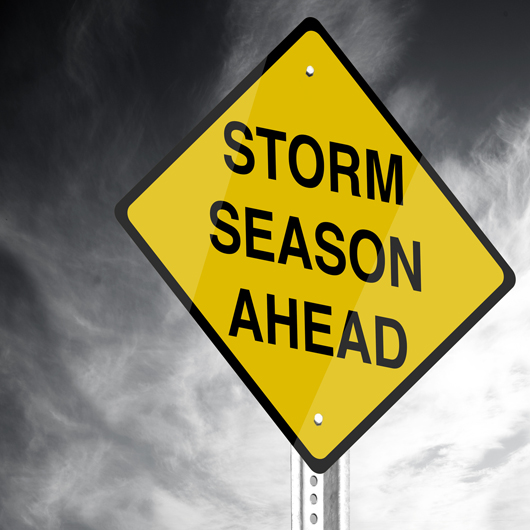The Top 5 Preparations Agents Need to Make When Disaster Is Looming
By Michael Wayne
 Recently the spouse of an agent acquaintance of mine convinced him that, after living in the same house for more than 30 years, they were wasting money on flood insurance. Six months after they cancelled their policy, nature inundated their house with more than six feet of water. At age 65, they found themselves having to redirect funds to completely rebuild and refurbish their house.
Recently the spouse of an agent acquaintance of mine convinced him that, after living in the same house for more than 30 years, they were wasting money on flood insurance. Six months after they cancelled their policy, nature inundated their house with more than six feet of water. At age 65, they found themselves having to redirect funds to completely rebuild and refurbish their house.
Many agents do a tremendous job of preparing their clients for the worst. We’ve often heard it said, however, that doctors make the worst patients. Employing the transitive property, agents make the worst insureds. To tend fully to the needs of clients, agents have to ensure that their own needs are met. If a client figures out that an agent is not equipped to take charge when things go south, in almost all cases he or she will look for someone who is, rather than giving the first agent the opportunity to make it right the next time.
You need a plan that has you up and running within 24 to 48 hours.
Figure out where you will be. There’s a chance that your office or even your home could be out of commission for an extended period of time. Map out likely destinations in several directions from which you may be forced to work remotely—locally and regionally. Does your agency have contingency sites ready? You may want to broach this subject with your executives, considering that as of a few years ago one survey found that 45% of agents did not have a formal disaster plan.
Figure out how you will access data. The digital age arrived long ago. Still, many of us are reliant upon paper to ensure the legacies of our clients and ourselves. That’s problematic in the face and eventual wake of a disaster.
Redundancy is a good thing here. If you aren’t already keeping electronic records, it’s time. For those of you who are keeping electronic records, you need to have an offsite data backup. That one hard drive waiting to be melted in a fire, drowned in a flood, or erased through some other means simply isn’t good enough. Multiple hard drives and cloud-based solutions are required, in addition to the equipment to access them.
Figure out how you will communicate with clients. In some extreme circumstances, you may not be able to reach your clients. They, however, should always be able to communicate with you if they have the means. Mobile devices and social media make doing so easier than ever before, but they are not fail safes.
Give clients what they need to reach you—mobile number, Twitter handle, Facebook page, LinkedIn, a landline—whatever you and they feel most comfortable using. Is your agency set to use its website to connect with clients? It’s unlikely that one solution will fit all situations. After a disaster, your clients’ mobile networks may be down. They may not have electricity. Emphasize to them that if they are able to evacuate they should have a kit prepared that includes all policy paperwork and information to assist them in returning to normality as expediently as possible.
Figure out who is responsible for managing what. Understand your role in your agency’s efforts. Also, know who the players are in key roles and who is supposed to coordinate what before, during, and after a disaster. Who are the brokers, property claims advocates, adjusters, legal and financial teams you need to be familiar with for specific disasters? Who are the backups? Disasters do not care about vacations, illnesses, retirements, or anything else. Disasters don’t wait for a convenient time to strike.
Figure out times to review your plan. You need to find time—quarterly, biannually, annually—to review your personal disaster plan. Your agency should be doing the same. Putting together a comprehensive plan that sits on the shelf for three years and is then broken out when things go wrong is a recipe for exacerbating a disaster. Information must be refreshed and made relevant. Your plan should reflect current realities—from specific cyber attacks to M&As that may have rendered contacts obsolete.
Set the example for your clients when it comes to planning. Share with them how you are preparing and your roadmap in case the worst should happen. That is what they are expecting from you, even if they don’t voice it.




